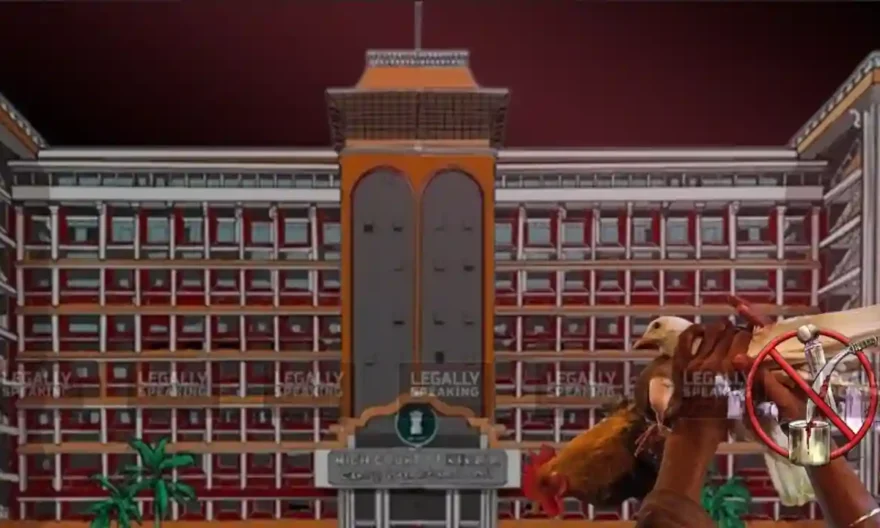
The Kerala High Court recently observed that unhealthy, unscientific, and harmful practises must be avoided, even if done for religious reasons.
In this regard, single-judge Justice VG Arun emphasised Dr. BR Ambedkar’s views on true religious practices.
“True religious practise, according to none other than Dr. B.R. Ambedkar, should be guided by reason, equality, and humanistic values, rather than blind adherence to traditions. All unhealthy, unscientific, and harmful practises must be prohibited, even if done in the name of religion,” the Court stated.
Furthermore, the Court ruled that animal sacrifice performed under the guise of religious practise is one such practise that must be prohibited.
The observations were made by the Court as it was considering a petition filed by a man seeking to prohibit the party-respondent’s illegal slaughter of birds and animals under the pretext of ritualistic sacrifice. The obnoxious actions were reportedly carried out in a temple-like structure built by the respondent on the second story of his residential building.
According to the petitioner, the respondent displayed a sign with the name ‘Sree Bhramarambika Vishnumayaswam Devasthanam’ and was canvassing devotees through notices and other forms of advertisement.
“Every day, the respondent performs poojas and rituals in his building, accompanied by the ringing of bells, blowing of the conch and the shrieks and cries of animals and birds. The blood of slaughtered animals is flown to the road, and carcasses are strewn everywhere,” according to the petitioner’s submissions as recorded in the order.
It was argued that the construction was illegal since it was done without permission under the Kerala Panchayat Building Rules, the Manual of Guidelines to Prevent and Control Disturbances and to Promote Communal Harmony, 2005.
Furthermore, it was contended that ritualistic animal sacrifice breaches the provisions of the Prevention of Cruelty to Animals Act and the Kerala Animals and Birds Sacrifices Prohibition Act.
The petitioner further claimed that despite being aware of the issues, the police and Panchayat authorities did not take any action against the respondent.
The State government and the Panchayat acknowledged that there are problems, but claimed that the respondent has been hesitant to cooperate despite mass complaints.
The respondent, on the other hand, maintained that the form of worship he practises, which follows the Shaktheyam ritualistic method of using pancha makaram, namely liquor, fish, meat, mudra, and midhunam, is an essential part of his religious belief and cannot be interfered with under Articles 25 and 26 of the Indian Constitution.
He further argued that the permissions claimed by the petitioner do not apply to him because he is practising religious activities inside his pooja room and is not canvassing worshippers.
The Court took special note of the petitioner’s claim that, despite being informed about the construction of a religious place without prior approval, the District Authorities and the police are refusing to take action.
The Court expressed concern about the police and panchayat authorities’ passivity and stated, “It is disconcerting to note the weak-kneed and jittery approach of the police and revenue authorities, when illegalities committed in the name of religion are brought to their attention. The authorities should keep in mind that the rules of this country apply equally to all individuals and that no preferential treatment can be given to anyone on religious grounds. The Panchayat is also at fault for failing to act after seeking explanation, despite the fact that the petitioner had built in breach of the rules of the Kerala Panchayat Raj Act and the Panchayat Building Rules.”
As a result, it directed police and panchayat officials to take appropriate action to resolve the problem.




